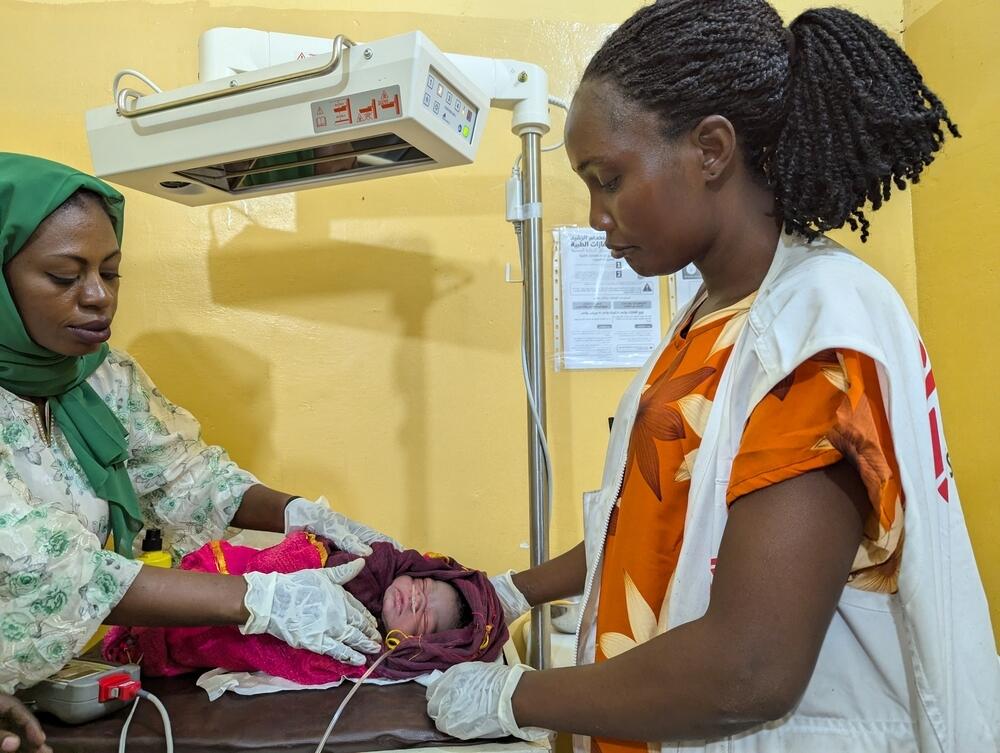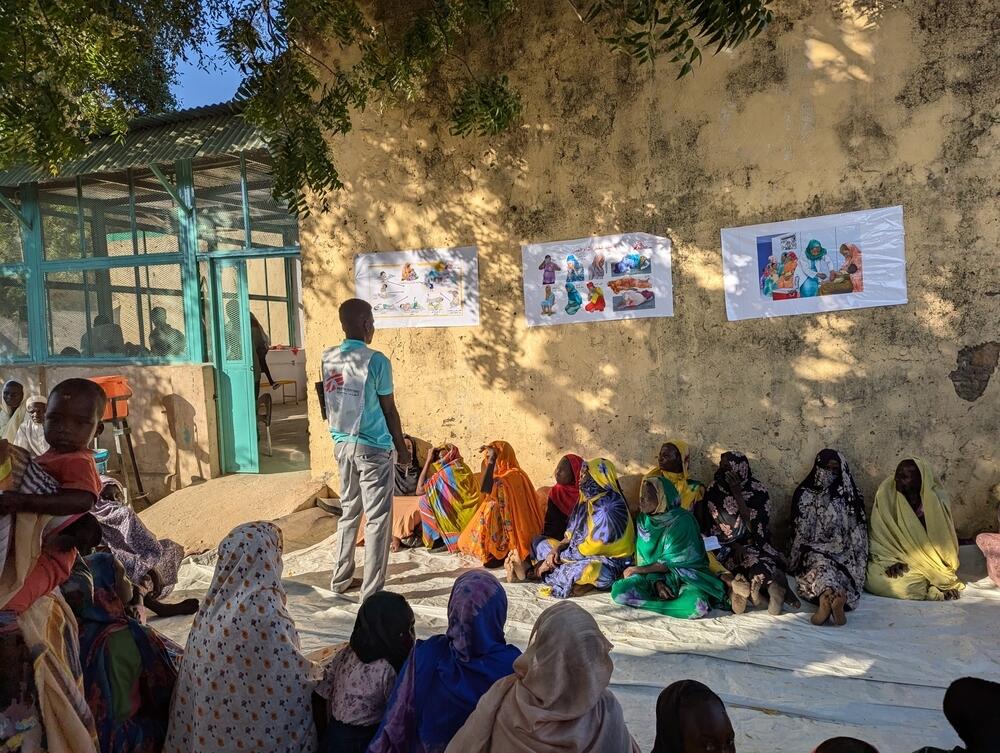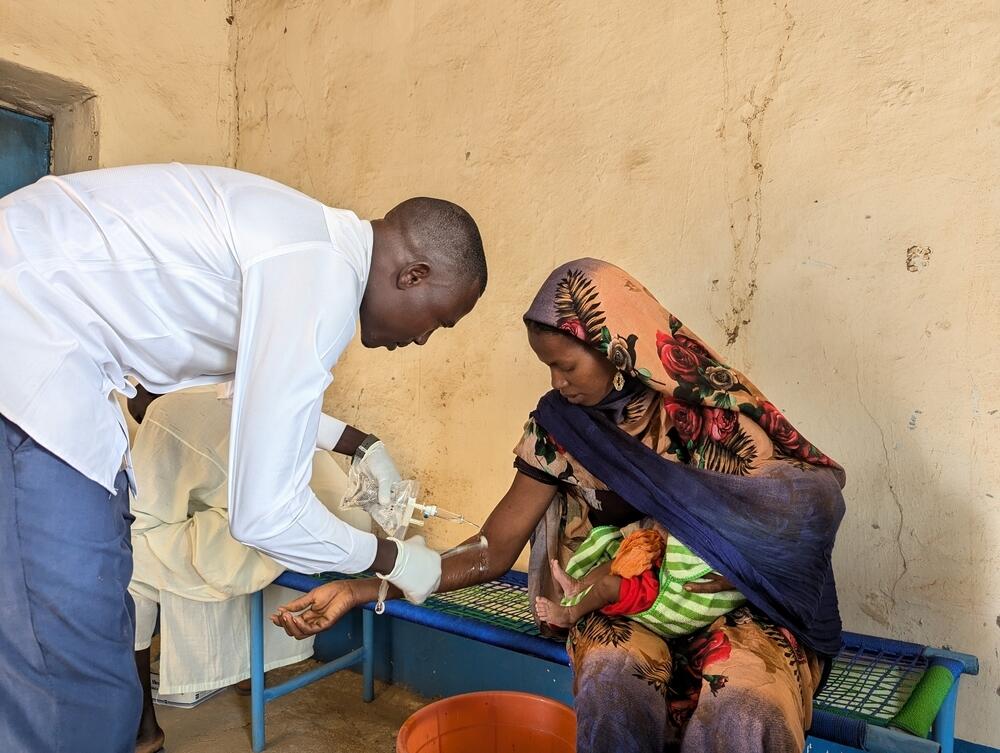Sudan: The crisis facing pregnant women in conflict-hit Darfur
With only a few health facilities still functioning in Sudan's conflict-hit Darfur region, pregnant women face harrowing journeys to seek care.
Insecurity, checkpoints, and unaffordable or unavailable transportation are forcing pregnant women to make day-long treks by foot or donkey, often resulting in delivery complications, miscarriage or death.
Médecins Sans Frontières / Doctors Without Borders (MSF) operates in ten out of Sudan’s 18 states and has been witnessing the grave toll that the war has taken on women and their health in the region of Darfur and across the country.
In West and Central Darfur, many women who live in remote areas give birth at home, relying on traditional methods.
The scarcity of healthcare facilities, the distance they have to travel, the insecurity on the road and the price of transportation, often result in women seeking healthcare only after they face complications. This puts both their lives and the lives of their newborns at great risk.
According to the World Health Organization (WHO), more than 70 percent of health facilities in conflict-affected areas like Darfur are barely operational or completely closed, leaving millions without access to critical care amid one of the worst humanitarian crises in recent history.

Help us prepare for the next emergency
“One mother gave birth at home, and couldn’t remove the placenta, then she was bleeding, so they rushed her to the hospital”, remembers Wendemagegn Tefera Benty, medical consultant at Zalingei Hospital in Central Darfur.
“The family had to carry her and after one day of walking, when they reached, she had already passed away because of the bleeding”.
Emergency caesarians
The ongoing war in Sudan has a profound impact on the health of pregnant women and their babies, particularly in terms of preterm deliveries. People have struggled to find work and to access food and clean water.
As a result, many pregnant women arrive at hospitals malnourished, which directly affects the health of their babies, often leading to preterm birth and malnourished babies.
After these babies are born, they are frequently admitted to observation units to ensure their survival and wellbeing.
"The biggest difficulty is how to manage to bring food to my children,” said a 35-year-old maternity patient at Murnei Hospital in West Darfur.
“I was working a lot when I was pregnant and that is maybe why my baby was born weak. Access to healthcare was also difficult but MSF helped.”
“There’s no staff, no medications, nothing at all”
The MSF-supported Zalingei Hospital is the only referral hospital available for secondary healthcare activities - essential for complex medical conditions - for an estimated 500,000 people.
There is no other health facility managing deliveries in the area. In the operation theatre at Zalingei, MSF teams perform over 40 emergency caesarean section operations per month.
Thirty-five-year-old Afaf Omar Yahya experienced severe abdominal pain in her home as her pregnancy was about to come to term.
Due to the lack of transportation in Darfur, she had no choice but to travel for hours on a donkey to reach Zalingei Hospital. Upon her arrival, the doctor informed her she had suffered a miscarriage, and she needed to undergo an emergency caesarean section.
“Losing the baby was the greatest heartbreak for me”, Afaf said while recovering at the maternity ward.
Post-home delivery complications
Women from across Darfur share similar experiences but the situation shows no signs of improvement.
“Most of the complications we receive are caused by post-home delivery and anaemia during pregnancy,” said Virginie Mukamiza, midwife activity manager at Zalingei Hospital.
Pregnant women seek medical care when they have post-partum bleeding or sepsis.
“Most health facilities in Darfur are now mere empty buildings,” said Osanatu Sento Bangura, MSF midwife activity manager at MSF-supported Murnei Hospital in West Darfur.
“There’s no staff, no medications, nothing at all. Before the war, people had access at least to primary health care centres near their homes. Now they have to rely on big hospitals that are far away.”
Many of these situations could be prevented with antenatal consultations and adequate referral systems from primary care facilities, but most of them have been either out of service since the onset of the war or rely on humanitarian aid, which is widely unavailable, to deliver services.
Twelve days after giving birth at home, Sameera visited the Romalia mobile clinic, in a remote area of West Darfur, to have both her baby and herself checked. Upon arrival, she was running a high fever and had infected wounds in her arm.
Following the home delivery, she had experienced terrible abdominal pain. Her brother gave her an injection to bring down her temperature but injured her arm. She was in pain and couldn’t hold her baby properly. After conducting several tests, MSF teams at the clinic discovered the infection in her arm. They promptly disinfected and dressed the wound and prescribed a treatment.
The war’s far-reaching effects threaten to trap women and girls in a never-ending cycle of malnutrition, declining health, and maternal death.
MSF again calls for greater provision of lifesaving humanitarian aid and access to healthcare in Darfur. Warring parties must grant unhindered access for aid delivery and ease the obstacles that are preventing the civilian population from reaching healthcare.
MSF and the crisis in Sudan
The violence between the Sudanese Armed Forces (SAF) and the Rapid Support Forces (RSF) has trapped millions of people in the middle of an unexpected conflict. Hundreds of thousands have been forced to flee their homes while access to essential services such as healthcare has become increasingly difficult.
Médecins Sans Frontières / Doctors Without Borders (MSF) teams already working in Sudan have been responding to the crisis since its first moments.


